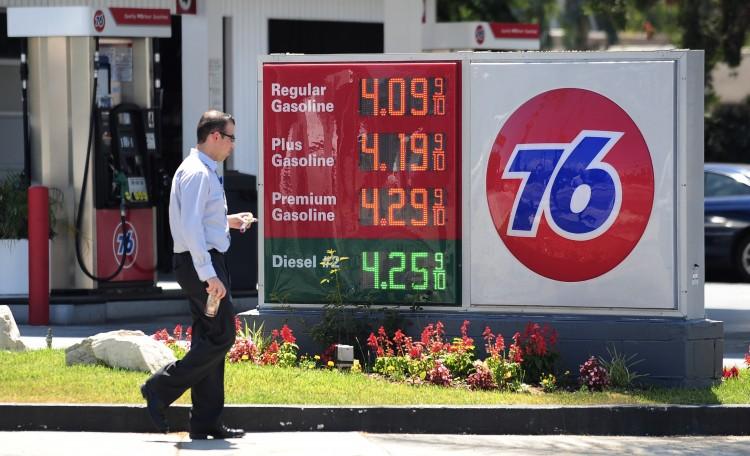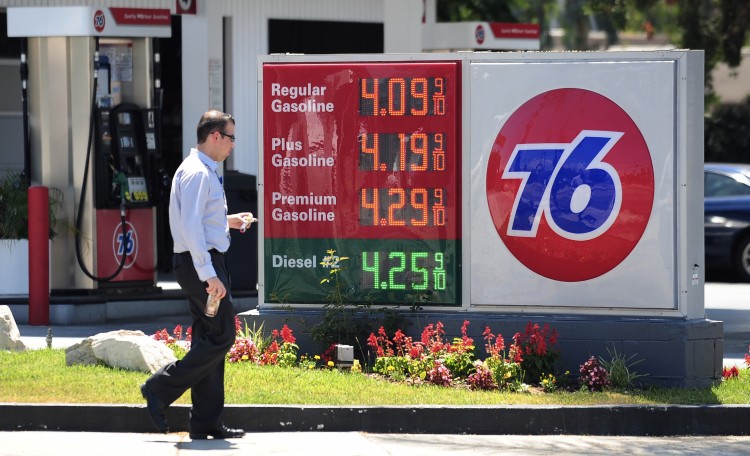New federal fuel efficiency standards are expected to take effect this month. Depending upon who you ask, the mandate will bring either prosperity or misery.
The 2012 Corporate Average Fuel Economy (CAFE) calls for unprecedented speed in technological development, requiring automakers to push toward a complete line of 34.1 miles-per-gallon vehicles by 2016. The long-term plan continues to advance toward even greater annual improvements, culminating in a lean and mean 54.5 mpg standard by 2025.
The government first began to push for fuel efficiency in 1973, after the Arab oil embargo. President Barack Obama first announced his standards in 2009 amid a recession and ever-increasing gas prices.
But unlike the first CAFE requirements of the 1970s, the ambitious standards set by Obama were strongly influenced by environmental regulators. Critics say the new voices at the table have pushed technology to evolve so fast that manufacturers and consumers can’t keep up.
According to a report this month from the congressional Committee on Government Oversight and Reform, American car buyers will have fewer choices because the Obama administration “allowed environmental extremists to push a radical agreement.”
“The impact of this process will not be immediate, but will be felt by manufacturers forced to make, dealers forced to sell, and consumers forced to purchase far different, more expensive, and less-safe vehicles,” the report stated.
The new standards were supposed to take effect last week, but some lawmakers are calling for more time. One of the authors of the congressional report, Committee Chairman Darrell Issa (R-Calif.), said the goals need further consideration.
“Higher fuel efficiency standards is a goal I share—but not at the expense of consumer safety and not when those rules are implemented under a cloak of secrecy in a manner outside the law,” Issa said in a statement on Aug. 21. “The process followed by Obama administration officials to develop these standards was politicized, not rooted in sound science, and was a political end run around seasoned experts who are required by law to lead the process.”
However, others say consumer interest and manufacturer compliance is already exceeding projected goals.
Comparing the first half of 2012 with the same time period in the year before, industry analyst Alan Baum of Baum & Associates said he sees a national trend toward making and buying fuel-efficient vehicles that is growing faster than anticipated.
“Instead of vehicle sales declining, which is often the case when fuel prices go up, they actually increased, and more importantly, they increased across a variety of vehicle segments,” Baum told reporters in a telephone news conference last month.
In other words, automakers are already making fleet-wide efficiency upgrades months ahead of the government mandate, and so far, consumers like what they see.
In fact, Baum said his research shows recent car buyers were able to find cars that met their needs “for utility, for size, horsepower, and fuel economy, and they didn’t have to go to smaller cars or smaller crossovers to meet those requirements.”
“We really shouldn’t be surprised by this,” added Baum. “Automakers have signed on to increases in fuel economy requirements not because they’re nice guys—it’s because they’re good for business.”
Although most major American automakers back the government’s plan, House Republicans say it is only because they gave in under duress. The report describes how the Obama administration presented its aggressive efficiency goals at the same time the government was helping the beleaguered auto industry with a massive bailout.
House Republicans say that new developments will not come cheap, with Americans expected to shell out at least an additional $3,000 for the upgraded vehicles.
But Baum said most consumers think it is worth it, saying there is evidence that many consumers and businesses “were drawn to showrooms specifically because they were seeking vehicles with greater fuel economy.”
“And yes, there might have been some modest increase in the cost of the vehicles because of the technology, but [consumers] obviously made the judgment that the improved mileage would offset their operating costs,” Baum told reporters.
Still, House Republicans warn that the dollars saved on gas mileage might cost consumers more than they realize. They predict that the effort to reduce mpg will result in more dangerous vehicles.
The report cites a recent survey of automotive engineers that states, “fuel economy requirements like those set for 2025 will be impossible to meet without sacrificing the safety of the vehicles [we will] drive in the future.”
While the committee report accuses the Obama administration of nearly destroying the domestic auto manufacturers with its overzealous goals, Baum said the government mandate gives automakers a predictable path for future product investment.
Of course, engineers have to face the challenge of meeting the new mileage requirements, but Baum said the bottom line is still about building vehicles that consumers want to buy.
“Different automakers are doing it different ways in terms of how they’re going to focus their technology, but most importantly they’re looking to make sure they’re bringing their customers along,” Baum said. “And the results that we’re talking about today show that’s already occurring.”
The rules release is a bit behind schedule, but Transportation Secretary Ray LaHood assures that the new CAFE is on its way. In an interview with the Detroit News last week, LaHood stressed that the rule was “made with the support of the carmakers.”
“It’s coming soon. We’re working with the White House and the EPA to roll it out. It’s going to happen,” LaHood told the Detroit News. “There’s no backing away—it’s just making sure everything’s done correctly.”
The Epoch Times publishes in 35 countries and in 19 languages. Subscribe to our e-newsletter.







